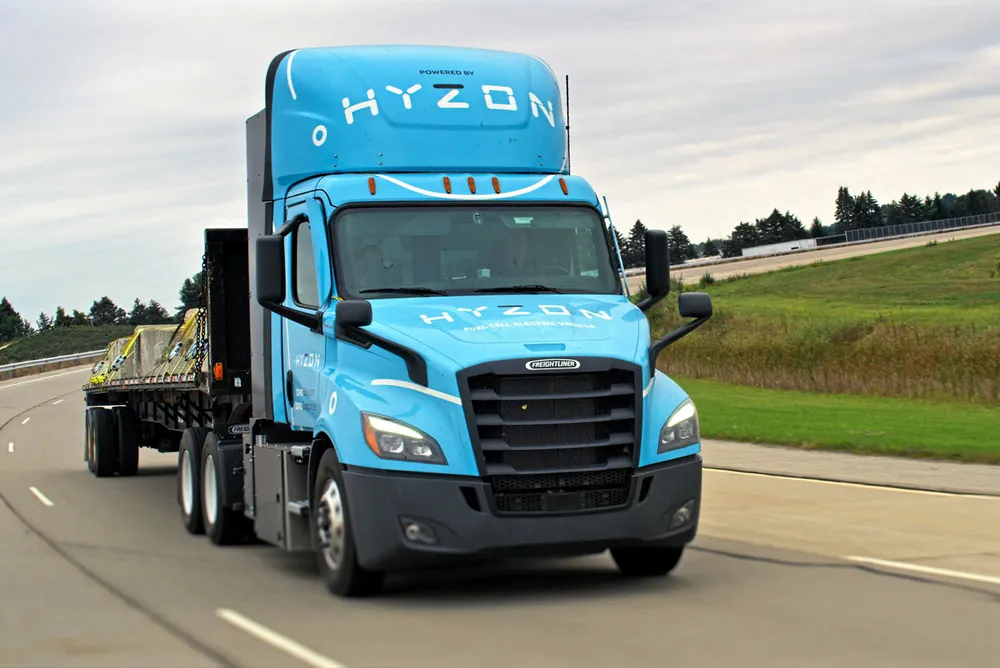Hydrogen truck company Hyzon risks Nasdaq delisting after allegations of fake customers and exaggerated orders
US manufacturer has been unable to file financial results for past two quarters, after admitting that previous declared earnings were no longer reliable
